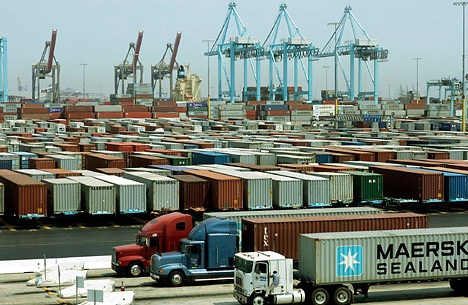Bad economy forces Los Angeles City Council to be selective in its boycott of Arizona businesses

Passing by a 13-1 vote, the Los Angeles City Council’s ban on Arizona’s businesses seems to be selective in nature, affecting only some business sectors.
One of the charges hurled at the new immigration law is that it is racist in nature, which was a concern voiced by many Hispanics almost right after its passage. The Los Angeles City Council’s view is that what it is doing is a noble action on behalf of fighting racism.
"As an American, I cannot go to Arizona today without a passport. If I come across an officer who's having a bad day and feels that the picture on my ID is not me, I can be … deported, no questions asked. That is not American," said Ed Reyes, a Los Angeles councilman who has been very vocal about the new law.
Racism charges aside, however, boycotting the new law will do more than financially hurt many in the Arizona Hispanic community. The already struggling job market within the city government sector of Los Angeles is also likely to take a hit. Industries that are a big part of the California economy are just as likely to lose revenue as well, according to the Los Angeles Times.
Two industries that seem to receive special attention from city officials are the Port of Los Angeles and the Los Angeles International Airport. According to the LA Times, officials from these two industries are uncertain of the boycott’s effect and are awaiting a pending review from boards that oversee the port, airport, and city utilities.
Concerning how much money is estimated to be lost in these particular industries, the numbers vary. From contracts that Los Angeles has with two Arizona-based airlines, US Airways and Mesa Air, The Times reports that LAX receives $22 million dollars in revenue.
Pertaining to revenue generated at the Port of Los Angeles, CNN reports that the Harbor Department has $26 million in contracts with Arizona and has come out in opposition to the resolution.
That Los Angeles’ boycott is a very targeted one is all the more highlighted by the resolution’s prohibitions. According to the resolution, travel by city officials is prohibited “unless special circumstances can be demonstrated to the Council that the failure to authorize such travel would seriously harm City interests.” The resolution also directs city departments to “refrain from entering into any new or amended contracts to purchase goods or services from any company that is headquartered in Arizona.”
At the same time, the language of the resolution is such that it will only refrain from those new contracts if there is “no significant additional cost to the City.” While city council members are asserting that they stand against the law based on principle, their conviction does not rest on principle alone.
In the resolute moves the council makes, they will take into account the economic interests of the city. Given the close business relationship that Arizona and Los Angeles have in common, council members might find it a little more cumbersome than they thought to carry out the boycott.




